A 62-year-old male patient with a history of hypertension and type 2 diabetes was admitted to the hospital with epigastric pain, increasing pain and difficulty breathing. After examination and necessary tests, the doctor diagnosed the patient with biliary obstruction due to common bile duct stones and gallbladder stones. The patient was indicated for endoscopic retrograde cholangiopancreatography to remove biliary stones, one of the advanced and highly accurate techniques currently used in the treatment of biliary tract diseases.
After a short intervention, the doctors successfully removed a 4x5mm stone from the bile duct, helping the bile duct to be clear and bile to circulate well. After the procedure, the patient's pain was significantly reduced, he recovered quickly and was discharged after 7 days of treatment.
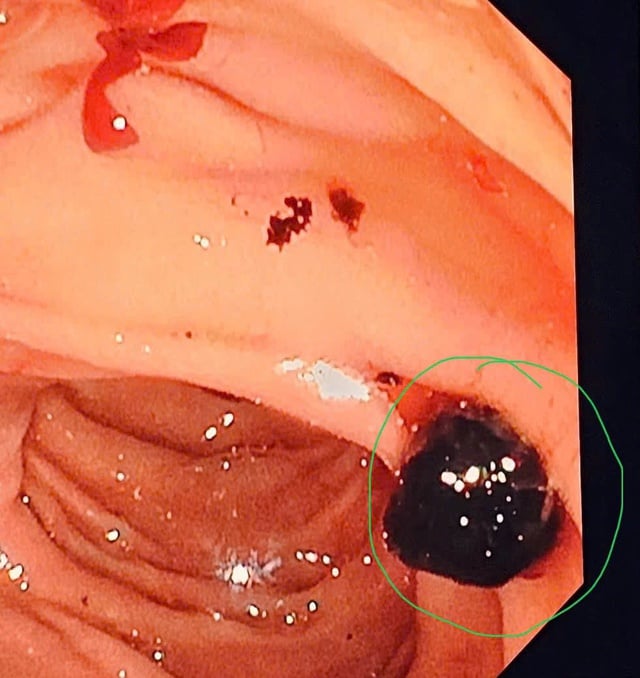
Image of stone on endoscope screen.
Recently, Thanh Hoa Provincial General Hospital admitted a 72-year-old man with epigastric and right hypochondriac pain, persistent and increasing dull pain, indigestion, and fatigue. Through examination and paraclinical tests, the patient was diagnosed with bile duct obstruction due to gallstones. Endoscopic images showed two bile duct stones measuring approximately 6mm and 7mm, respectively. The patient underwent endoscopic retrograde cholangiopancreatography (ERCP) to remove the stones and relieve the bile duct obstruction. After the intervention, the stones were successfully removed, the bile duct circulated well, the patient no longer had pain, was able to eat normally, and was discharged in a stable condition.
MSc. Dr. Le Van Son, Deputy Head of the Department of Functional Exploration, Thanh Hoa Provincial General Hospital, said that endoscopic retrograde cholangiopancreatography (ERCP) is a technique that combines digestive endoscopy and a high-resolution mobile C-arm X-ray system, allowing doctors to both observe and directly intervene in the bile duct and pancreas. "This method helps to accurately diagnose the cause of obstruction, and at the same time effectively treat diseases such as common bile duct stones, worms in the bile duct, biliary strictures or tumors in the bile-pancreatic region," said Dr. Son.
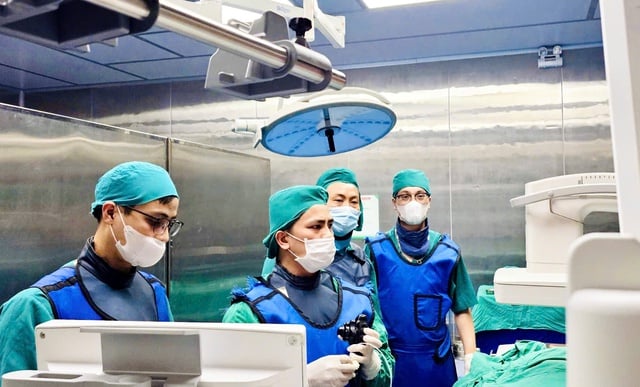
Doctors of the Department of Functional Exploration perform interventional endoscopic retrograde cholangiopancreatography (ERCP) for patients.
According to the head of the Department of Functional Exploration, the outstanding advantages of this technique are that it is less invasive, reduces complications, shortens hospital stay, helps patients recover quickly and reduces treatment costs compared to traditional open surgery. ERCP is a highly difficult technique, requiring a modern endoscopic equipment system, specialized X-ray machines and a team of highly trained doctors and technicians.
Source: https://suckhoedoisong.vn/benh-vien-da-khoa-tinh-thanh-hoa-lam-chu-ky-thuat-noi-soi-mat-tuy-nguoc-dong-can-thiep-ercp-16925110415202686.htm


![[Photo] Ho Chi Minh City Youth Take Action for a Cleaner Environment](https://vphoto.vietnam.vn/thumb/1200x675/vietnam/resource/IMAGE/2025/11/04/1762233574890_550816358-1108586934787014-6430522970717297480-n-1-jpg.webp)


![[Photo] The road connecting Dong Nai with Ho Chi Minh City is still unfinished after 5 years of construction.](https://vphoto.vietnam.vn/thumb/1200x675/vietnam/resource/IMAGE/2025/11/04/1762241675985_ndo_br_dji-20251104104418-0635-d-resize-1295-jpg.webp)
![[Photo] Panorama of the Patriotic Emulation Congress of Nhan Dan Newspaper for the period 2025-2030](https://vphoto.vietnam.vn/thumb/1200x675/vietnam/resource/IMAGE/2025/11/04/1762252775462_ndo_br_dhthiduayeuncbaond-6125-jpg.webp)
![[Photo] Ca Mau "struggling" to cope with the highest tide of the year, forecast to exceed alert level 3](https://vphoto.vietnam.vn/thumb/1200x675/vietnam/resource/IMAGE/2025/11/04/1762235371445_ndo_br_trieu-cuong-2-6486-jpg.webp)


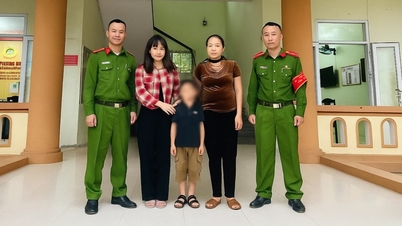

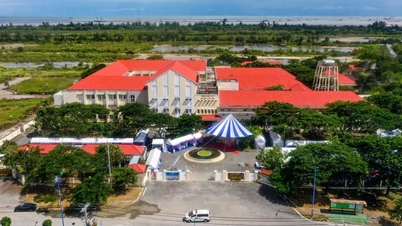



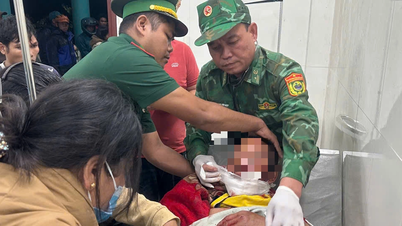








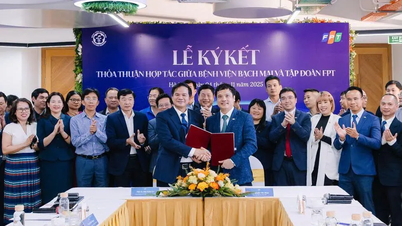































































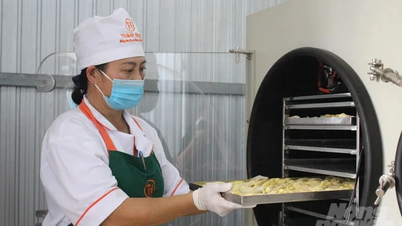
















Comment (0)